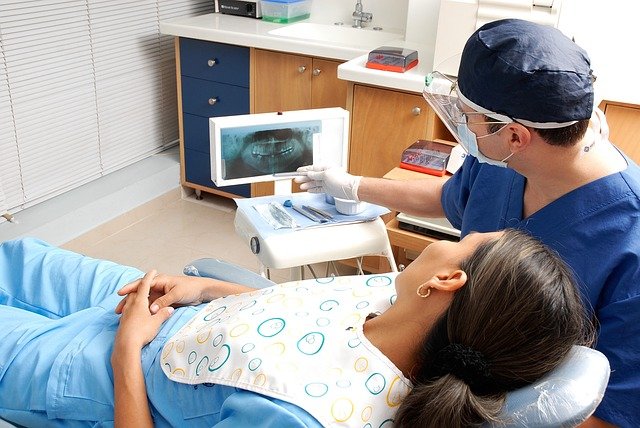Financing Dental Treatment
Many people are exploring different ways to make dental treatment more manageable financially. Options range from structured dental payment plans to specialized loans for dental care. Some individuals are reviewing dental grants or affordable dental solutions provided through community programs or clinics. By understanding how these approaches work and how they can be accessed, it becomes easier to plan dental care in a way that suits personal circumstances. This article looks at the ways these solutions are being considered and compared, offering a clearer picture for those seeking treatment support.

What Are Dental Payment Plans and How Do They Work?
Dental payment plans offer patients the flexibility to spread treatment costs over manageable monthly payments. Most dental practices partner with third-party financing companies or provide in-house payment arrangements. These plans typically require little to no down payment and may offer promotional periods with zero or low interest rates.
In-house payment plans are often more flexible, allowing dentists to customize terms based on individual circumstances. Patients can negotiate payment schedules directly with their dental office, sometimes without credit checks or additional fees. Third-party plans, while potentially offering longer terms, may include interest charges and require credit approval.
How to Secure Loans for Dental Care
Specialized healthcare financing companies provide loans specifically designed for medical and dental expenses. These loans often feature competitive interest rates and flexible repayment terms ranging from six months to several years. Popular options include CareCredit, LendingClub Patient Solutions, and Prosper Healthcare Lending.
Personal loans from banks or credit unions represent another viable option. While these loans aren’t specifically for healthcare, they can provide the necessary funds for dental treatments. Personal loans typically offer fixed interest rates and predictable monthly payments, making budget planning easier for patients.
Understanding Dental Grants and Assistance Programs
Dental grants provide financial assistance for qualifying individuals who cannot afford necessary dental care. These programs are typically need-based and may focus on specific demographics, such as seniors, children, or low-income families. The National Institute of Dental and Craniofacial Research occasionally funds community programs that provide free or reduced-cost dental services.
State-specific programs, charitable organizations, and dental schools also offer grant opportunities. Many dental schools provide discounted treatments performed by supervised students, offering significant savings while maintaining quality care standards.
Comprehensive Guide to Financing Dental Treatment Options
Beyond traditional financing methods, patients can explore health savings accounts (HSAs) and flexible spending accounts (FSAs) to pay for dental procedures with pre-tax dollars. These accounts can provide substantial tax savings while covering routine cleanings, major procedures, and orthodontic treatments.
Dental insurance, while not technically financing, can significantly reduce out-of-pocket expenses. Even basic plans typically cover preventive care at 100% and provide partial coverage for restorative procedures. Understanding your insurance benefits and timing treatments strategically can maximize coverage and minimize costs.
| Financing Option | Typical Interest Rate | Repayment Terms | Benefits |
|---|---|---|---|
| CareCredit | 0-26.99% APR | 6-60 months | Promotional periods, wide acceptance |
| Personal Bank Loan | 6-36% APR | 2-7 years | Fixed rates, predictable payments |
| In-House Payment Plans | 0-12% APR | 3-24 months | Flexible terms, no credit check |
| Dental School Clinics | N/A (Direct Payment) | Immediate | 40-60% cost reduction |
Prices, rates, or cost estimates mentioned in this article are based on the latest available information but may change over time. Independent research is advised before making financial decisions.
Comparing Costs and Choosing the Right Financing Solution
Treatment costs vary significantly based on location, complexity, and provider experience. Routine cleanings typically range from $75-200, while major procedures like crowns or implants can cost $1,000-5,000 or more. Understanding these baseline costs helps patients evaluate financing options effectively.
When comparing financing solutions, consider the total cost of borrowing, including interest and fees. A longer repayment term may reduce monthly payments but increase overall costs. Conversely, shorter terms may strain monthly budgets but minimize interest expenses. Calculate the true cost of each option before committing to any financing arrangement.
Dental treatment financing has evolved to accommodate diverse financial situations and needs. Whether through structured payment plans, specialized healthcare loans, grant programs, or alternative funding methods, patients have numerous options to access quality dental care. The key lies in researching available programs, understanding terms and conditions, and selecting the option that best aligns with your financial circumstances and treatment timeline. By exploring these financing alternatives, you can prioritize your oral health without compromising your financial stability.
This article is for informational purposes only and should not be considered medical advice. Please consult a qualified healthcare professional for personalized guidance and treatment.




